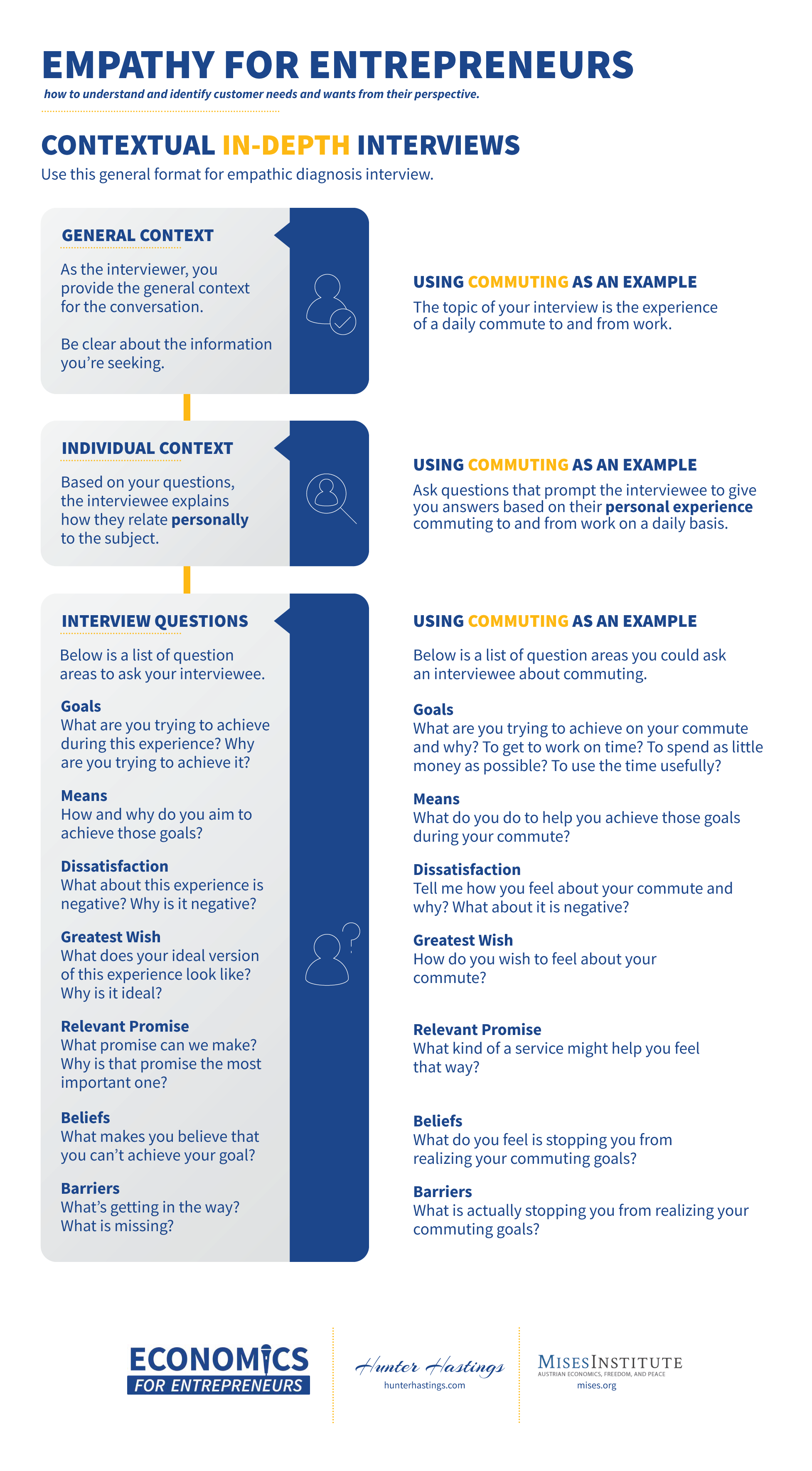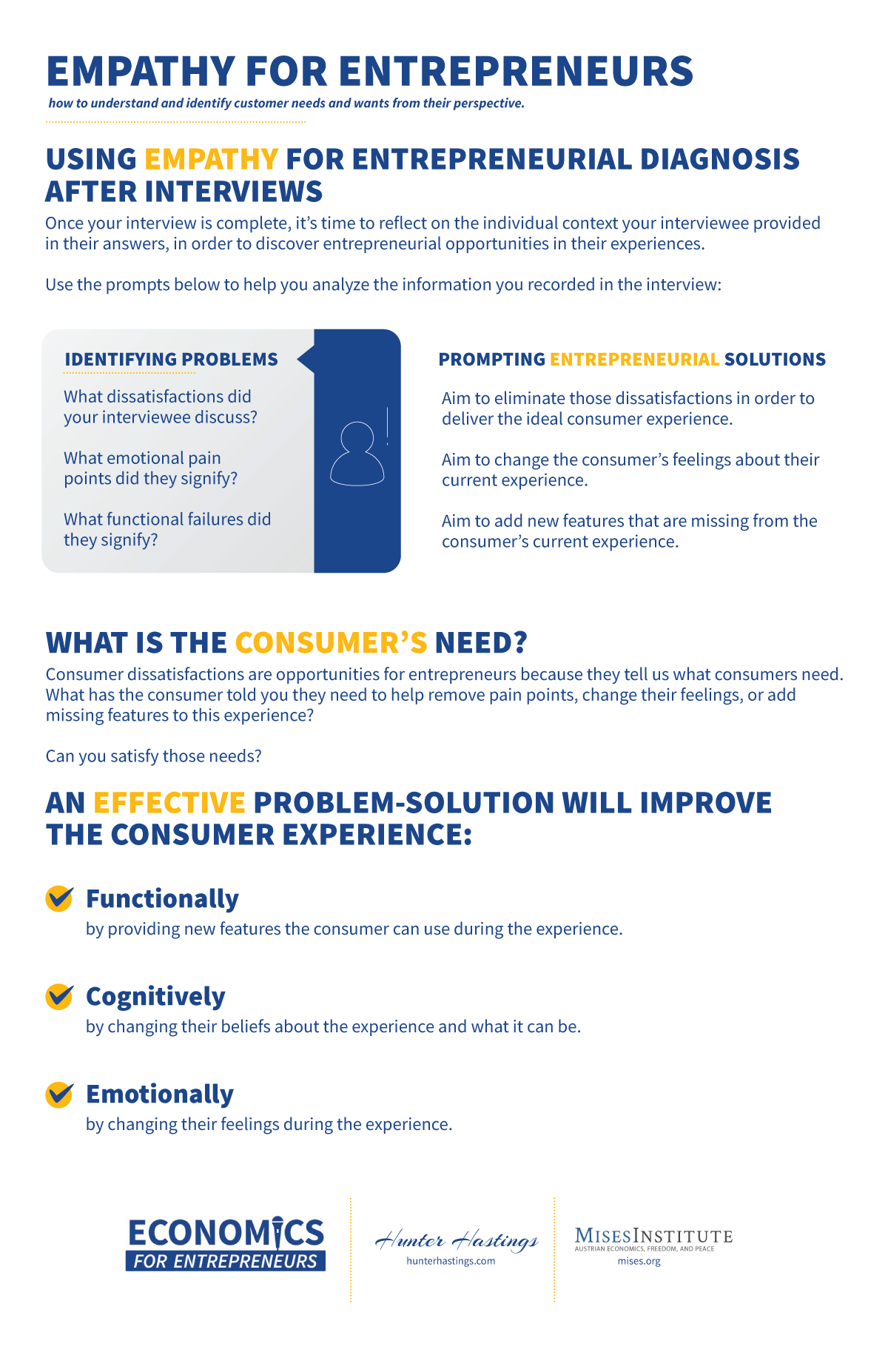Interview on Power Trading Radio
Check out my recent appearance with John O’Donnell on Power Trading Radio where we discuss my most recent book, the Economics for Entrepreneurs Podcast and more.
Check out my recent appearance with John O’Donnell on Power Trading Radio where we discuss my most recent book, the Economics for Entrepreneurs Podcast and more.
At Economics For Entrepreneurs, we believe that everyone can be an entrepreneur, should they choose to do so. It may take you some time to find exactly your best niche, and a few experiments may be in order. The right mindset, we propose, is to pursue your entrepreneurial goal with belief and commitment, while being sufficiently adaptive to make some adjustments along the path when new information and new learning becomes available.
This week we spoke with Ricky Porco, a young CEO who already has several entrepreneurial experiences to his name. He’s been co-founder of an innovative community-building platform, and of a software development company. He’s also been a marketing, sales and do-it-all guy at a digital marketing agency, and now he runs a service company to help small businesses make the transition from paper to digital – i.e. he’s an entrepreneur who supports entrepreneurs.
Starting entrepreneurship early in life is an advantage. Ricky tells listeners how he started his entrepreneurial career in college, packing a lot of learning into a short period of time. It’s a permanent advantage he’s carried forward with him into every subsequent stage of his journey.
It might take you a few tries to understand what kind of entrepreneurship is best for you. You might expect to switch businesses two, three, four or more times, changing markets, organizations, and business models. Make sure you make your choices purposefully, and commit to active learning from each one.
You might even try life as an employee to learn by comparison. Ricky switched into the role of employee at one stage. He was able to observe how the boss he reported to struggled with management and growth, and learn from it, while gaining confidence in his own skills through his success as a rainmaker for this employer.
You quickly find out the importance of financial management. Ricky quickly found out that he and his co-founders were good a business model design, product development, marketing and sales, but a start-up is financially immature by definition and can easily run out of cash. Without sound and disciplined financial management, all the other skills and capabilities can count for nought.
And you also quickly find out that effective marketing is essential to every business. Some of Ricky’s clients see marketing as optional – “if there are funds left over”. The opposite is true: marketing is a fundamental requirement.
Organizational structure and design is a critical factor in success, and especially in opening information flows. The biggest threat to the entrepreneurial success of a firm is a clogged information flow, when employees or partners don’t have clear direction or timely data. This can easily happen in founder-centric companies and especially in family-owned businesses that tend to be hierarchical.
Digitization is the best opener of information flows: software is organization. One simple solution to the clogged information flow is digitization. Software solves the problem; there’s no hierarchy in Slack.
Download 8 Attributes of Austrian Entrepreneurs.pdf (117 KB)
What attributes do great entrepreneurs have?
An entrepreneur plays the role of identifying a need, imagining a future where that need is met, and taking action to assemble the right resources to deliver a product or service which meets that need. The individual who thrives in this role exhibits some special character traits and personal attributes. Our list below outlines some of the core attributes that successful entrepreneurs seem to have in common. Click Here to download the PDF version.
Today we talked with Peter Klein about empathy – a critical tool in the entrepreneur’s toolbox. It’s through empathy that entrepreneurs can get into the customer’s mind, understand and identify their needs and wants from their perspective and in their perception.
This is the skill that enables the design of new products, new services, new systems and new solutions. If the entrepreneur has exercised empathy well, the chances of success in the design process are high for the customer to say, “Yes! That’s what I need!” Is empathy a difficult skill to master? Not really. We all have it to some degree. It needs to be applied with a combination of subtlety and discipline.
Empathy is a skill we learn from childhood. We’re taught as kids, when we say or do something that might be unkind or upsetting to another person, to “think about how they must feel”. The vernacular is to “walk in their shoes”. It’s the same essential skill we apply as entrepreneurs.
Entrepreneurs need to master the skill for an audience that might not be in their social circle and with whom they may not be familiar. You may be selling to car buyers, or cooking enthusiasts, or sports fans, or the procurement officer at a client. This kind of empathy is a little bit less natural and a little bit more learned.
It is entirely possible to learn entrepreneurial empathy and to get better at it. You can develop a process of reading and gathering data about the category or market you’re operating in, talking to actual and potential customers, conducting quantitative or qualitative surveys (like focus groups), analyzing the sentiments in social media conversations, or just talking to folks with a viewpoint. You can hire a consultant or an employee with highly developed customer empathy skills. But always, it’s your interpretation of the data that’s the key. What is motivating the customer, what is driving them, what is the feeling that’s at work?
There are plenty of tools. There are market research tools, analytical tools, and all kinds of methods you can use. Learn them on YouTube or an online course. Or use our Entrepreneurial Diagnosis Tool: the Contextual In-Depth Interview.
Think of yourself as a Doctor, performing a diagnosis. Often the patient can describe symptoms, but does not know the underlying cause, and certainly doesn’t know the cure. The doctor asks questions, performs some pattern recognition based on existing knowledge, and perhaps performs some tests to narrow down the possibilities. In the end, the doctor arrives at the diagnosis and the prescription based on skill.
The Doctor analogy extends even further to the cure you are trying to deliver to the customer. Your target customer is not so much looking for something new as they are seeking to solve some dissatisfaction. There is some feeling on their part – a little vague, perhaps, not too well articulated, but nevertheless genuinely felt – that something in their life could be better. Ludwig von Mises called it “felt uneasiness”, which is a wonderfully descriptive expression. As an entrepreneur, you are taking away an uneasiness. The result is a better feeling on the customer’s part – an end to that uneasiness.
This is what entrepreneurs do in a free market economy of mutually voluntary exchange. We persuade customers that they will feel better, be better off, experience more enjoyment, if they buy the product or service we are offering to them. They can be confident of that future feeling because of the empathy the entrepreneur has exercised in developing an understanding of them, their dissatisfactions and their unique individual preferences. The entrepreneurial system is best for everyone because it’s based on empathy.
Download Entrepreneurial-Empathy.pdf (163 KB)
In our podcast episode, The Role Of The Entrepreneur, Peter Klein presents us with the idea of Entrepreneurial Empathy – the notion that entrepreneurs can get into the customer’s mind, understand and identify their needs and wants from their perspective and in their perception.


The tool we’ve created is designed to give you a framework for conducting and analyzing in-depth interviews that will help you discover important bits about the customer’s experience by hearing about it in their own words. Use the first page to guide you through the process of conducting an interview and to help identify what might be the most important questions to ask in order to get valuable answers. Use the second page to help you identify entrepreneurial opportunities that might be embedded in your interviewee’s answers about their experiences.
In our podcast episode on Entrepreneurial Specialization, Bob Luddy explains his path to entrepreneurship in detail, and uses the “Effectuation” model as a lens to describe the start of his entrepreneurial career.
Effectuation is a theory of entrepreneurship that starts with self-identity and self-resourcing. The “problem to be solved” emerges later in the process. The diagrammed tool we created is designed to help you understand the steps of the Effectuation process and how it might be applied to thinking about your own entrepreneurial business, using Bob Luddy’s path to entrepreneurship as an example.
Download Bob Luddy’s Effectuation Process.pdf (101KB)